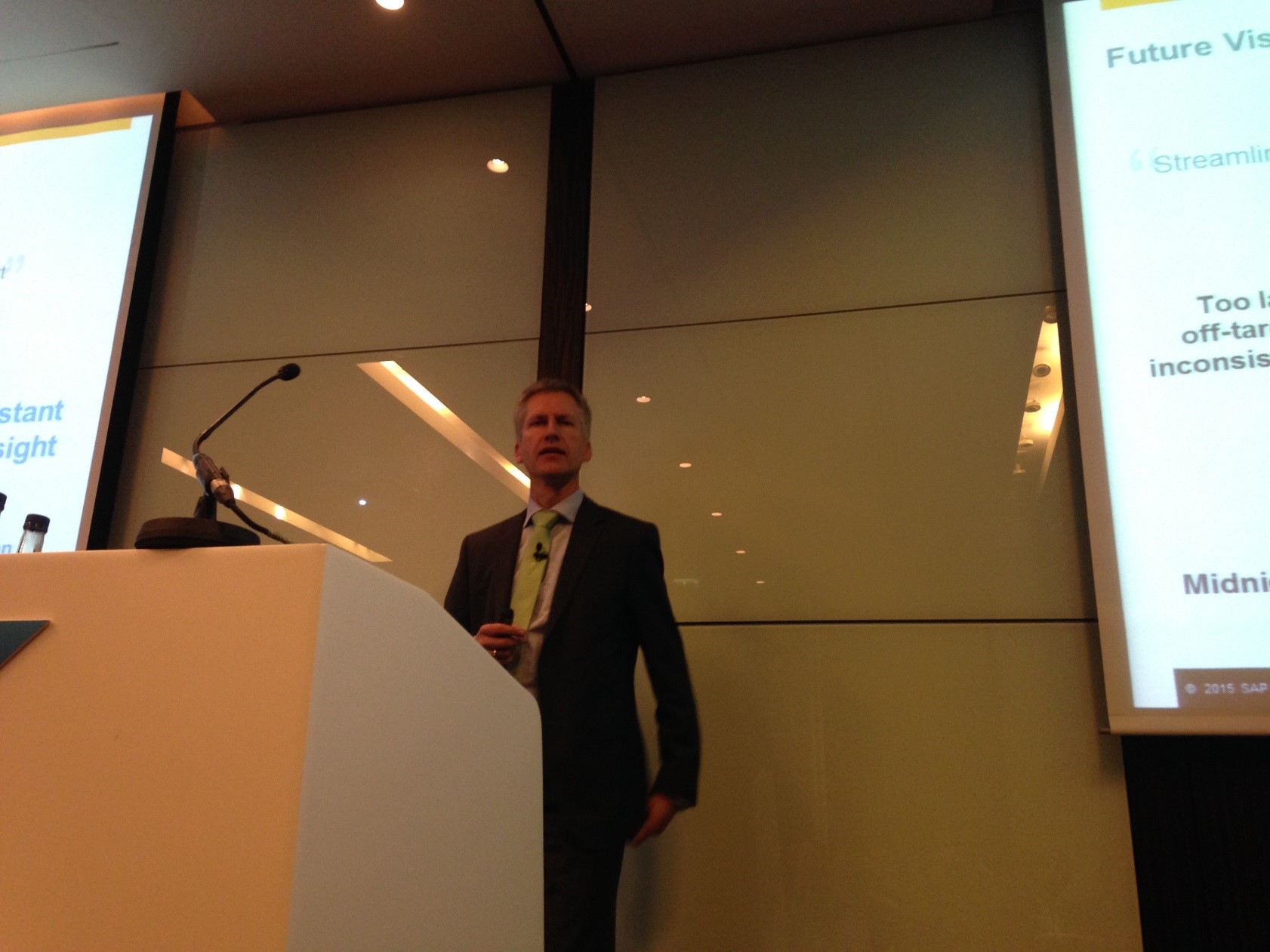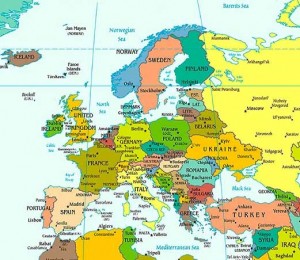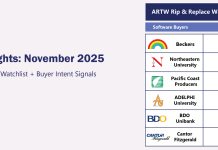Amid a possible economic meltdown in Greece, the European software market is bracing for a host of challenges that could derail a fragile recovery.
Interviews with enterprise applications customers and vendors in Europe over the past few months indicated a growing confidence in the macro-economic conditions as countries like the United Kingdom are experiencing accelerating business activities due to low unemployment and increased foreign direct investment.
For example, Salesforce.com in June 2015 announced that in order to grow its Cloud business throughout Europe it would acquire one of its implementation partners Kerensen Consulting, a nine-year-old firm in Paris with more than 200 employees and hundreds of customers.
Similarly, PAUL, a popular bakery chain based in France with 126 years of history, has opened multiple stores in the United Kingdom over the past year, expanding its presence across Europe. The same is taking place in popular destinations like Milan, Italy where recent investments from China have spawned a thriving industry made up of hundreds – if not thousands of traders, wholesalers and distributors in the city center.
However, these are exceptions rather than the rule with Italy and France suffering stubbornly high double-digit unemployment rates and Greece and Spain faring much worse. A continent may muddle through, but it often gets tangled up by distrust and disagreement over what course to take in order to sustain its growth, or to achieve any desirable business outcome for that matter.
Hurt by a weak Euro, Oracle, for example, reported disappointing results in its European software business in its latest quarter, typically its strongest three-month period. During the quarter ended May 30, 2015, software revenues for Oracle operations in the EMEA region, dropped 22% in dollar terms and fell 8% in constant currency, its worst quarterly showing in more than four years.
Tradition vs Technology
One of the reasons behind the sluggish pace of recovery has to do with business practices that are tradition-bound at best, or downright inefficient at worst. Esker, a document management application vendor based in Lyon, France, estimates that only 5% to 8% of invoices are issued electronically in continental Europe, while much of the rest of the world has embarked on a paperless revolution. Electronic invoicing is far more common in countries like United Kingdom, United States and Australia than say France or Italy. The reason behind the shortfall in continental Europe is that customers – especially among small and midsized companies – simply refuse to pay if they don’t receive a paper invoice.
Complicated tax rules in Europe are also to blame for such resistance to change given that the government bureaucracy wields considerable influence over matters large and small. In other words, tradition reigns in much of Europe.
Meanwhile, the taxi industry in France has been up in arms over disruptive forces borne by the mobile revolution. Few days before I arrived in Paris, a violent confrontation boiled over when taxi drivers went on strike overturning and torching cars allegedly belonging to those working for Uber Pop. Part of the US-based Uber, UberPop is a local ride-sharing service that has won a big following among the Paris middle class that appears to be skirting – if not abandoning – the debilitating metro and suburban rail systems. UK, by comparison, appears to be gaining an upper hand over France when it comes to heavy investments in its metro system, especially in standardizing stored-value card system in lieu of paper tickets. Used paper tickets are still littered like confetti inside the French metro system.
Make no mistake about it, European companies big and small are investing in new technology. In 2014, more than 100 Cloud applications vendors with headquarters in Europe saw a 45% jump in collective Cloud subscription revenues, based on our latest figures on the Cloud Top 500 Applications Vendors. However the performance would have been much more subdued if one were to take out the acquisition-induced gains such as those from SAP following its acquisition of Concur.
Cloud, Big Data, Security Forces Converge
A number of tech conferences that I attended over the past weeks in Europe suggested that the interest levels in Cloud, Big Data, Internet Security and other products were palpable.
Salesforce.com said its June 25 event in Paris drew more than 9,000 registered attendees. Thousands more showed up at the Internet Security conference held in London a few weeks earlier. Across town, SAP had a big crowd at its Innovation Forum near the Big Ben. Ditto for the Big Data Analytics conference hosted by Whitehall Media in Russell Square.

Big companies such as SNCF, the rail operator in France, and BAE Aerospace in the UK, have all indicated that their increased investments in Cloud applications as well as analytics infrastructure in order to better serve their customers. SNCF, for example, is counting on Salesforce.com to help it improve service by generating more valuable insights into millions of passengers that it carries every year.
British Gas Connected Homes, on the other hand, is tackling a number of Big Data projects involving 15,000 messages per second by using Cassandra for linear scalability and Spark for fast in-memory cluster computing.
Despite robust growth in such markets as Cloud applications, Big Data and Internet security software, the European Union continues to be hobbled by the lingering effects of the 2008 financial crisis that saw bank failures in Ireland, Spain and elsewhere, a sector that used to invest heavily in core systems.
Doom and Gloom?
Then there are the intangible factors that make the European market particularly challenging. A long history of territorial disputes, punctuated by infightings among the rulers and the ruled, have all contributed to a psyche that borders on status quo preservation, rather than investing in something new and different. Some may call it the European pragmatism, others may view it as risk aversion after enduring centuries of doom and gloom.
At one of the industry conferences for tech investors in Paris, a speaker implores entrepreneurs in the audience to relocate to the United States even temporarily in order to boost chances of success. That sentiment is echoed by an American friend of mine, who has been calling Paris home since 2006. While her Parisian friends all express an interest in working and living in the United States, she prefers Paris over any other city after jetting around the world for business. Perhaps it’s one of those common gripes that the grass is always greener elsewhere.
Still the desire of some Parisians to leave the City of Lights spells pessimism over a popular destination that for decades has drawn idealists, musicians, and authors from Jim Morrison to Ernest Hemingway.
During my recent stay in Paris, I walked past a homeless family huddling right next to a stroller along Boulevard de Sebastapol, one of its major thoroughfares on a bright Sunday morning. The toddler, no more than two years old, gave me a quick look, while an adult male beside him stared vacantly into the distance. A woman covered in a bedsheet slept next to them. On my return to the same spot 15 minutes later, the boy held up the bedsheet in hopes of shielding the woman from the morning sun. It was a disturbing sight in one of the richest cities in the world, a bastion of child welfare where museums like the Louvre give free access to anyone under 18.
It’s as if the bleak existence of the toddler and his family – stranded on the side of a busy boulevard in the heart of Paris – resembles the dire situation in Greece with thousands of pensioners waiting in vain to collect their dwindling monthly payments, while the rest of Europe hurtles past them.
Digital Service Economy
The solution for much of Europe is to fast becoming a service-centric region led by consumer goods, financial and professional services as well as a world-class supply chain and transportation system, while capitalizing on its rich heritage for tourist dollars. Yi-Ke Guo, a professor at the Data Science Institute of Imperial College London, said the recipe is to transform itself by leveraging the latest technology available.

“Everything in life is measured and quantified. That applies to medicine, engineering, and natural sciences,’’ Guo said, adding that the combination of Big Data and the Cloud will user in a digital service economy. The big question for Europe is whether it can adapt its business practices to the digital era fast enough in hopes of sustaining and enriching its many races, while keeping much of its tradition intact and marketable.
Any inaction on the part of the European establishment could prolong the austerity measures that have been a fixture since the financial crisis. The long-held belief that if it ain’t broke, don’t fix it formula could actually work against many companies in Europe.
Sometimes it takes unconventional thinking to get things done in Europe. For example, a global bank with major operations in Germany, Switzerland and the United Kingdom recently decided to replace its legacy payroll processing system by leveraging the latest Cloud technology from NGAHR, a UK-based HR software and service provider.
After a lengthy review, the US-based bank realized that it could incur significant future risks if it continues to run its payroll in the above countries using a 25-year-old software package that is tethered to a 35-year-old printer, while relying on local payroll service providers that have reached their limits in terms of handling any European headcount growth at the bank.
It’s not clear how many financial services companies based in Europe would share the view of their counterparts in the United States that a proactive approach when it comes to technology adoptions could end up making themselves more competitive in the long run when relentless cost cutting remains the strategy du jour.
One thing is certain – the future of Europe is likely to be defined by how companies plan to assess, mitigate and take on additional risks if necessary through smart technology adoptions in order to ensure that they do not miss any business opportunity that comes their way.






